Call it a coup or not, but Egypt now has Mubarakism without Mubarak. This is the first of a three part series.
Ever since Mohammed Morsi was elected president of Egypt in democratic elections marred by his Mubarakist opponent Ahmad Shafiq’s electoral corruption and bribes, a coalition of Egyptian liberals, Nasserists, leftists — including socialists and communists of varying stripes – and even Salafist and repentant Muslim Brotherhood (MB) members, began to form slowly but steadily, establishing an alliance with Mubarak’s ruling bourgeoisie and holdover politicians from his regime to oust him from power, fearing that he and his party were preparing a “Nazi-like” takeover of the country and destroying its fledgling democracy.
The scenario they fear is the one that brought the Nazis to establish a totalitarian state in 1933. In July 1932, in the German Reichstag (parliamentary) elections, the Nazi party received over 37% of the vote, becoming the largest party in parliament. On January 30, 1933, German President Paul von Hindenburg appointed Hitler Reich Chancellor, wherein Hitler headed a cabinet with a minority of Nazi ministers. A month later, on February 27, 1933, arsonists burned down the Reichstag building in Berlin. Hitler blamed the communists and accused them of a plot to overthrow the democratically elected parliament and asked the president of the Weimar Republic to grant him emergency powers to suspend civil liberties so that he could chase the communists, imprison them, dissolve political parties, and close down the press. This came to be known as the Reichstag Fire Decree. On March 23, the Reichstag conferred on Hitler dictatorial powers, establishing the Nazi totalitarian regime and state.
The anti-Morsi alliance, which began to form in earnest in August 2012, started out bashfully but would become proud and assertive by November 2012, after Morsi’s infamous constitutional decree, which centralized political power in the hands of the president. With the aid of Mubarak’s judges, the Mubarakist bourgeoisie and the Supreme Council of the Armed Forces (SCAF), which had ruled Egypt for a year and four months after Mubarak’s ouster, had already dissolved the post-uprising democratically-elected parliament, which was composed of a majority of Islamists, on technical grounds, before Morsi’s election. They did so to the cheers of liberals and leftists who claimed that they were the real leaders of the January 25 uprising that overthrew Mubarak and who feared the elected Islamists, whom they depicted not as part of the uprising but as encroachers on their “revolution.” A few days before the elections, the military also issued a constitutional decree constricting the powers of the elected president and concentrating it in the hands of the military.
The liberals’ and the leftists’ fear was that the Muslim Brotherhood was Egypt’s Nazi party – they pretend to be democrats until they get elected and then they will refuse to leave power and will eliminate the democratic process and establish an Islamist dictatorship. That the Mubarak-appointed judges were the ones who dissolved the democratically elected parliament seemed not to bother the liberals and the leftists much, but they were horrified when Morsi issued his constitutional decree, which aimed to take away the power of Mubarak’s judges whom he had tried to depose unsuccessfully. Indeed, the constitutional decree was seen as a sort of Reichstag Fire Decree, which it could very well have been. Morsi would soon reverse himself and cancel the decree in response to popular uproar. He would, more recently, express regret for having issued it.
Morsi’s Record
The Morsi government seemed surprisingly pliant and friendly to Western interests, including towards Israel, whose president, Shimon Peres, was addressed by Morsi as “my dear friend” in an official presidential letter. Contrary to expectations of a burgeoning friendship with Hamas, under Morsi’s government, the Gaza border in Rafah was closed more times than under Mubarak, security coordination with Israel became more intimate than under Mubarak, and to make matters worse, Morsi, with the Egyptian army and the help of the Americans, destroyed the majority of the underground tunnels between Gaza and Sinai which the Palestinians had dug out to smuggle in food and goods during their interminable siege since 2005 and which Mubarak had not dared demolish.
Morsi even went further by mediating between Israel and Hamas during the latest Israeli attack on Gaza, vouching that he would guarantee that Hamas would not launch rockets against Israel but not the other way around. It is true that Morsi refused to meet with Israeli leaders, but even Mubarak had refused to visit Israel for years before his ouster and had recalled his ambassador in protest against Israeli policies. One of Morsi’s more major acts before his recent ouster was not the closure of the Israeli embassy, as friends and enemies of the Islamists threatened he would do, but closed down instead the Syrian Embassy in support of the ongoing right-wing Islamist insurrection in that country.
While in power, Morsi and his government continued Mubarak’s policies of contracting the public sector and social spending in a continuing war against the poor and downtrodden of Egypt, who are the majority of the population, and pushed forth neoliberal economic policies that favored the rich and powerful, including an IMF deal (which was never finalized for no fault of Morsi’s), which would increase the already existing austerity measures against the poor. Indeed, he did nothing to change the existing labor and tax laws that favor the rich and oppress workers, middle class employees, and the poor. Morsi neither prosecuted army generals for crimes of which they stood accused (he rather bestowed on them major state honors and awards and made those whom he retired into advisors to the president), nor tried the Mubarakist thieving bourgeoisie in the courts for its pillage of the country for three and a half decades, let alone the security apparatus that continued to repress Egyptians under his rule.
On the contrary, as a president who came out of the rightist and neoliberal wing of the Muslim Brotherhood (compared to the more centrist Abd al-Mun’im Abu al-Futuh, who also ran for the presidency and lost), he was interested in an alliance between the Islamist neoliberal bourgeoisie, whose most visible member is Khayrat al-Shatir (who was barred from running for the presidency by the Mubarakist courts), and the Mubarakist bourgeoisie. Unlike al-Shatir, who is the son of a rich merchant and who made his own fortune in Egypt, many among the Islamist rich, though not all, made their money in the Gulf. They were mostly kept out of a share in the pillaging of Egypt, restricted to the close businessmen friends of Mubarak, and now wanted a place at the table to partake of the ongoing pillage of the country. While Morsi won the favor of the military with the US vouching for his good behavior, at least until the other week, hard as he tried to convince the Mubarakist bourgeoisie to allow the Islamists to partake of pillaging Egypt, the Mubarakist bourgeoisie would not budge.
The Response of the Mubarakists
The Mubarakist bourgeoisie’s response was that Egypt was theirs to pillage alone (though they have always been happy to include the Americans, the Saudis, the Emiratis and, of course, the Israelis) and that they would not allow some Islamist upstarts to move in on their territory. Having shunned Egypt’s poor, its peasants and workers, its low income middle classes, while courting the rank and file of the Muslim Brotherhood, the Islamist and Mubarakist bourgeoisies, and the military, Morsi had no one but the Brotherhood to fall back on when the army abandoned him and the Mubarakists and the coalition, plotting with them, intensified their attacks on him.
Mubarak’s bourgeoisie set their media empires loose on Morsi and the Muslim Brotherhood. Week after week, hour after hour, on television, in the press, on social media, especially Facebook but also Twitter, a campaign of vilification, exaggerations, and outright lies would ensue. Television anchors would go as far as calling for the violent overthrow of Morsi. Members of the opposition, like millionaire engineer Mamdouh Hamzah, openly called on the army to stage a coup.
Campaigns, which were also supported by the Saudis and the Emiratis, would target Qatar, the sponsor of the Muslim Brotherhood around the Arab world, as a financial monster trying to buy out everything in Egypt, including allegedly the Suez Canal and the pyramids. The comedian Bassem Youssef (very popular among the Cairo and Alexandria bourgeoisie and middle classes, but virtually unknown to the majority of poor and lower class Egyptians in the cities and the countryside who cannot understand the majority of his Western and upper middle class references) went after Qatar with a clever parody of a late 1950s Arab nationalist song, which designated Qatar rather than “the Arab homeland” as its object of adulation, on account of the latter’s increasing financial investments in Egypt (both real and imagined). That the Saudis, the Emiratis, and the Americans are larger financial monsters and have investments and property in the country that far exceed what the voracious Qataris had been rumored to acquire did not merit any of them a parody song like the Qataris. The irony is that while the Qataris have been the sponsors and engineers of Muslim Brotherhood takeovers across Arab countries which experienced uprisings, including Egypt, or were sometimes made to experience them by the Qataris, as in Libya and even in Syria, the Saudis and the Emiratis have been the active sponsors of the counter-revolutions and of the anciens regimes.
In the meantime, the media and the pundits kept speaking about Morsi as the new “Hitler” and the Muslim Brotherhood as the “Nazi Party.” The highly westernized Bassem Youssef, even unfurled the Nazi flag to his audience in one episode as a reference to the Brotherhood flag, thinking that the Nazi flag would be so familiar to most Egyptians that it would produce gasps of horror. Judging from the reaction of his choreographed studio audience, which reacted nonchalantly to the flag, which is not recognizable to most Egyptians (who are, unlike their western counterparts, not avid consumers of Hollywood films about WWII) outside political and intellectual circles, the impact seemed limited. But the Nazi and Hitler analogies would be made also by academics in their op-ed columns, time and again. Indeed, the recently appointed minister of culture was even likened to Goebbels by one columnist, which is not a problem unto itself, but what about the endless and repetitious barrage of propaganda and lies by the anti-Morsi media conglomerates? Does it deserve a comparison with Goebbels?
We should bear in mind that the Nazi accusations have been often used in world politics to justify all kinds of actions. In fact, Morsi is not the first Egyptian president accused of being a Hitler. In 1954, and in light of the Lavon Affair, Israel dubbed Nasser “Hitler on the Nile” for prosecuting Israel’s terrorist spies. The French and the British followed suit during their preparation for the 1956 invasion of Egypt, claiming that they were fighting a fascist Nasser and that their anti-fascism trumps his anti-imperialism.
Western liberals who supported the US invasion of the Arabian Peninsula in 1991 and Iraq in 2003 to remove Saddam Hussein also argued that their anti-fascism trumps the anti-imperialism of opponents of the invasion. Hosni Mubarak, in contrast, who served as a tyrant for three decades, was never called Hitler by the opposition press. Ironically, the only Egyptian president who ever flirted with Nazism was none other than Anwar el-Sadat, who had been a pro-Nazi enthusiast in his youth.
*[Note: Read part two on July 18. This article was originally published by CounterPunch.]
The views expressed in this article are the author's own and do not necessarily reflect Fair Observer’s editorial policy.
Image: Copyright © Shutterstock. All Rights Reserved
Support Fair Observer
We rely on your support for our independence, diversity and quality.
For more than 10 years, Fair Observer has been free, fair and independent. No billionaire owns us, no advertisers control us. We are a reader-supported nonprofit. Unlike many other publications, we keep our content free for readers regardless of where they live or whether they can afford to pay. We have no paywalls and no ads.
In the post-truth era of fake news, echo chambers and filter bubbles, we publish a plurality of perspectives from around the world. Anyone can publish with us, but everyone goes through a rigorous editorial process. So, you get fact-checked, well-reasoned content instead of noise.
We publish 2,500+ voices from 90+ countries. We also conduct education and training programs
on subjects ranging from digital media and journalism to writing and critical thinking. This
doesn’t come cheap. Servers, editors, trainers and web developers cost
money.
Please consider supporting us on a regular basis as a recurring donor or a
sustaining member.
Will you support FO’s journalism?
We rely on your support for our independence, diversity and quality.



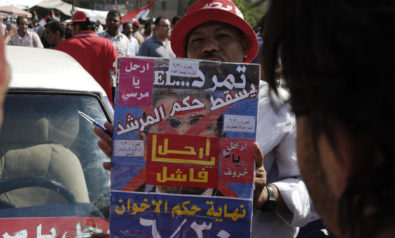


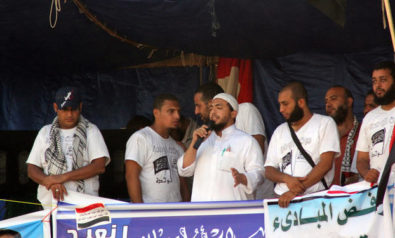
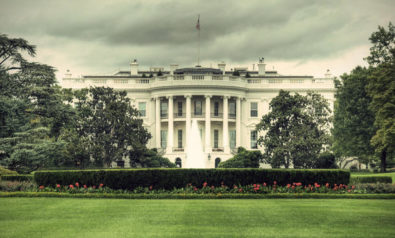


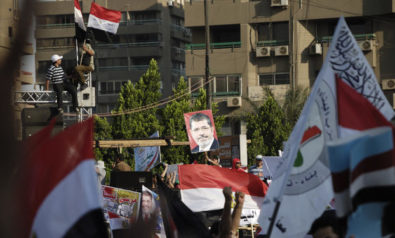
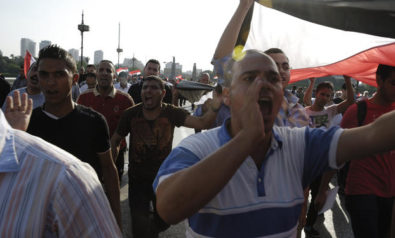
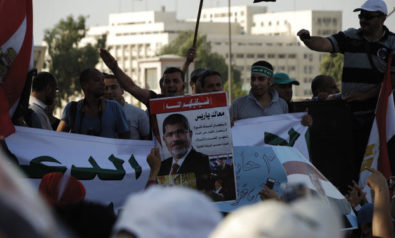

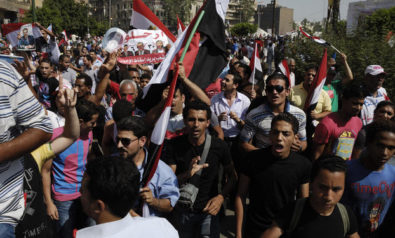
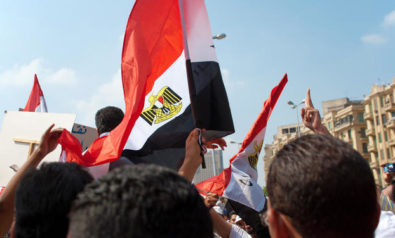
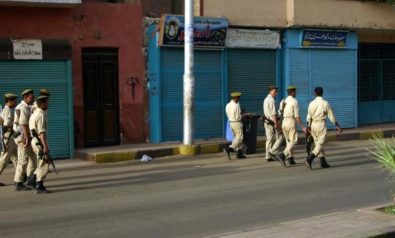
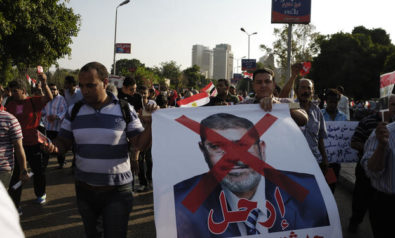
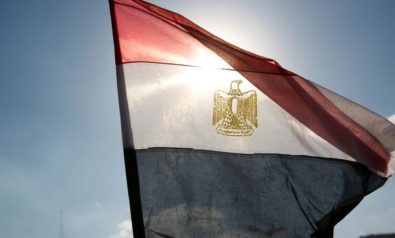


Comment